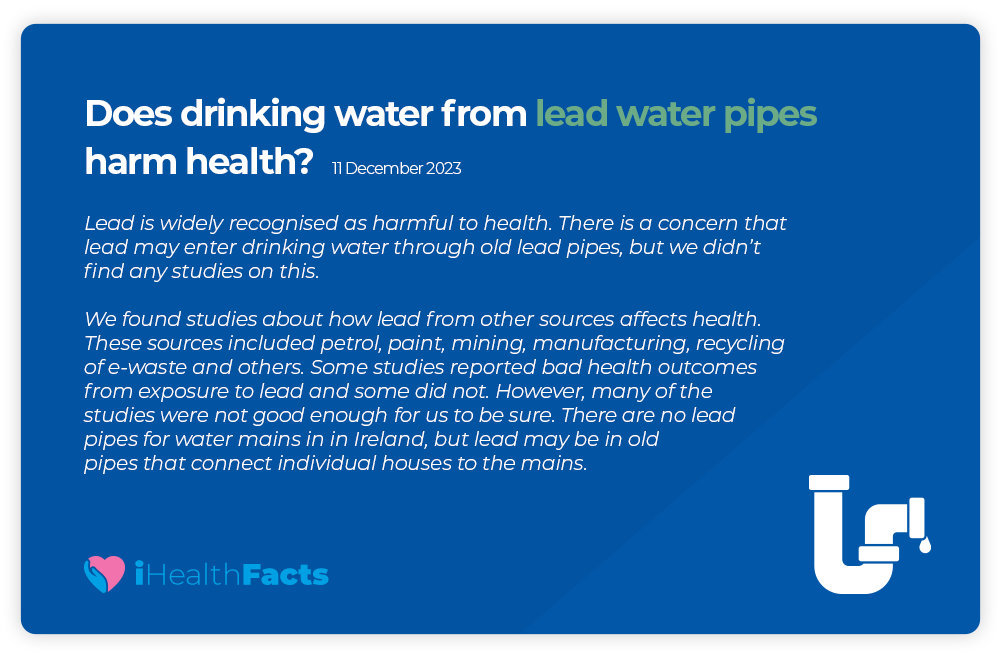- Lead Researcher: Dr. Paula Byrne, Senior post-doctoral researcher, iHealthFacts, Evidence Synthesis Ireland and Cochrane Ireland, College of Medicine, Nursing and Health Sciences, University of Galway.
- Reviewed by: Dr. Kayleigh Kew, Freelance researcher in evidence synthesis methods and technology, UK
- Topic advisor: Prof. Dearbhaile Morris, Personal Professor of Antimicrobial Resistance and One Health, and Head of the Discipline of Bacteriology at the School of Medicine, and Director of the Centre for One Health, University of Galway.
- Public and Patient advisor: Anne Daly, Public and Patient Involvement in research (PPI) advisor, PPI Ignite, University of Galway.
- Journalist Advisor: Dr. Claire O’Connell, PhD in cell biology, Masters in Science Communication. Contributor to The Irish Times, writing about health, science and innovation.
Conflict of Interest Statement: The authors have no financial or other conflicts of interest for this health claim summary.
